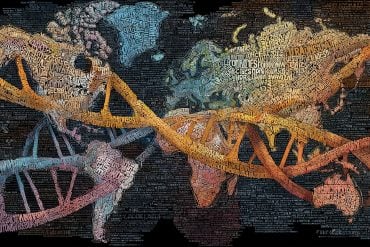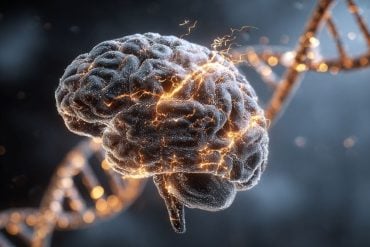Summary: Western diets high in sugars reduce the number of Th17 inflammatory cells in the guts of mice, setting off a chain of events that lead to metabolic diseases, prediabetes, and obesity.
Source: Columbia University
A study of mice found that dietary sugar alters the gut microbiome, setting off a chain of events that leads to metabolic disease, pre-diabetes, and weight gain.
The findings, published today in Cell, suggest that diet matters, but an optimal microbiome is equally important for the prevention of metabolic syndrome, diabetes, and obesity.
Diet alters microbiome
A Western-style high-fat, high-sugar diet can lead to obesity, metabolic syndrome, and diabetes, but how the diet kickstarts unhealthy changes in the body is unknown.
The gut microbiome is indispensable for an animal’s nutrition, so Ivalyo Ivanov, PhD, associate professor of microbiology & immunology at Columbia University Vagelos College of Physicians and Surgeons, and his colleagues investigated the initial effects of the Western-style diet on the microbiome of mice.
After four weeks on the diet, the animals showed characteristics of metabolic syndrome, such as weight gain, insulin resistance, and glucose intolerance. And their microbiomes had changed dramatically, with the amount of segmented filamentous bacteria—common in the gut microbiota of rodents, fish, and chickens—falling sharply and other bacteria increasing in abundance.
Microbiome changes alter Th17 cells
The reduction in filamentous bacteria, the researchers found, was critical to the animals’ health through its effect on Th17 immune cells. The drop in filamentous bacteria reduced the number of Th17 cells in the gut, and further experiments revealed that it’s the Th17 cells that are necessary to prevent metabolic disease, diabetes, and weight gain.
“These immune cells produce molecules that slow down the absorption of ‘bad’ lipids from the intestines and they decrease intestinal inflammation,” Ivanov says. “In other words, they keep the gut healthy and protect the body from absorbing pathogenic lipids.”
Sugar vs. fat
What component of the high-fat, high-sugar diet led to these changes? Ivanov’s team found that sugar was to blame.
“Sugar eliminates the filamentous bacteria, and the protective Th17 cells disappear as a consequence,” says Ivanov. “When we fed mice a sugar-free, high-fat diet, they retain the intestinal Th17 cells and were completely protected from developing obesity and pre-diabetes, even though they ate the same number of calories.”

But eliminating sugar did not help all mice. Among those lacking any filamentous bacteria to begin with, elimination of sugar did not have a beneficial effect, and the animals became obese and developed diabetes.
“This suggests that some popular dietary interventions, such as minimizing sugars, may only work in people who have certain bacterial populations within their microbiota,” Ivanov says.
In those cases, certain probiotics might be helpful. In Ivanov’s mice, supplements of filamentous bacteria led to the recovery of Th17 cells and protection against metabolic syndrome, despite the animals’ consumption of a high-fat diet.
Though people do not have the same filamentous bacteria as mice, Ivanov thinks that other bacteria in people may have the same protective effects.
Providing Th17 cells to the mice also provided protection and may also be therapeutic for people. “Microbiota are important, but the real protection comes from the Th17 cells induced by the bacteria,” Ivanov says.
“Our study emphasizes that a complex interaction between diet, microbiota, and the immune system plays a key role in the development of obesity, metabolic syndrome, type 2 diabetes, and other conditions,” Ivanov says. “It suggests that for optimal health it is important not only to modify your diet but also improve your microbiome or intestinal immune system, for example, by increasing Th17 cell-inducing bacteria.”
All authors: Yoshinaga Kawano (Columbia and Keio University School of Medicine), Madeline Edwards (Columbia), Yiming Huang (Columbia), Angelina M. Bilate (Rockefeller University), Leandro P. Araujo (Columbia), Takeshi Tanoue (Keio University School of Medicine and RIKEN Center for Integrative Medical Sciences), Koji Atarashi (Keio University School of Medicine and RIKEN Center for Integrative Medical Sciences), Mark S. Ladinsky (California Institute of Technology), Steven L. Reiner (Columbia), Harris H. Wang (Columbia), Daniel Mucida (Rockefeller University), Kenya Honda (Keio University School of Medicine and RIKEN Center for Integrative Medical Sciences), and Ivaylo I. Ivanov (Columbia).
Funding: This work was supported by funding from the U.S. National Institutes of Health (DK098378, AI144808, AI163069, AI146817, DK093674, DK113375, AI132403, DK118044, and EB031935); the Burroughs Wellcome Fund (PATH1019125 and PATH1016691); fellowships from MSD Life Science Foundation, the Russell Berrie Foundation, and the Naomi Berrie Diabetes Center at Columbia University Irving Medical Center; a Grant-in-Aid for Specially Promoted Research from the Japan Society for the Promotion of Science (20H05627); the U.S. National Science Foundation (MCB-2025515); and the Irma T. Hirschl Trust.
About this diet and obesity research news
Author: Lucky Tran
Source: Columbia University
Contact: Lucky Tran – Columbia University
Image: The image is in the public domain
Original Research: Closed access.
“Microbiota imbalance induced by dietary sugar disrupts immune-mediated protection from metabolic syndrome” by Ivalyo Ivanov et al. Cell
Abstract
Microbiota imbalance induced by dietary sugar disrupts immune-mediated protection from metabolic syndrome
How intestinal microbes regulate metabolic syndrome is incompletely understood. We show that intestinal microbiota protects against development of obesity, metabolic syndrome, and pre-diabetic phenotypes by inducing commensal-specific Th17 cells.
High-fat, high-sugar diet promoted metabolic disease by depleting Th17-inducing microbes, and recovery of commensal Th17 cells restored protection. Microbiota-induced Th17 cells afforded protection by regulating lipid absorption across intestinal epithelium in an IL-17-dependent manner. Diet-induced loss of protective Th17 cells was mediated by the presence of sugar.
Eliminating sugar from high-fat diets protected mice from obesity and metabolic syndrome in a manner dependent on commensal-specific Th17 cells. Sugar and ILC3 promoted outgrowth of Faecalibaculum rodentium that displaced Th17-inducing microbiota. These results define dietary and microbiota factors posing risk for metabolic syndrome.
They also define a microbiota-dependent mechanism for immuno-pathogenicity of dietary sugar and highlight an elaborate interaction between diet, microbiota, and intestinal immunity in regulation of metabolic disorders.







